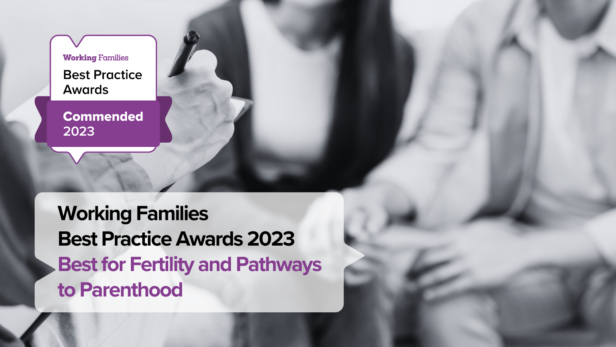British Army – Commended 2023, Best for Supporting Fertility and Pathways to Parenthood
The British Army recognises that the path to parenthood is a workplace issue and, through impactful measures and strong networks that provide help and tackle taboos, is ensuring individuals receive the support they need.
Adoption and surrogacy
Employees can access support from day one of employment. Adoption leave and shared parental leave are matched to maternity leave of 52 weeks, with 26 weeks full pay and a further 12 weeks at the statutory rate. The primary adopter is entitled to paid time off to attend up to five pre-adoption appointments and the other parent is entitled to two. Surrogate parents can attend up to two antenatal appointments. Bespoke adoption support is provided by the charity SSAFA.
Fertility and loss
The British Army have developed Assisted Conception and Fertility Preservation policies that ensures funded access to treatment aligned to NHS criteria and NICE guidelines in order to meet the needs of a dispersed workforce. Fertility is a considering factor when postings are being assigned, and individuals can access flexible working, agree geographic stability and periods of restricted separation to aid pathways to parenthood. Employees are entitled to the maximum NICE recommended number of cycles irrespective of where they are employed, with funded return travel to the UK available to ensure equality of access. The policy also includes support for those who have sustained genital injury due to their employment, as well as provision of proactive Fertility Preservation where there is risk of genital injury. Partnerships with the Fertility Network UK and the Bank of England/Natwest group helps share best practice and has been instrumental in education through lunch and learns.
The commitment to supporting child-loss is reflected in being a signatory of the Miscarriage Association’s Pregnancy Loss Pledge. All relevant policies are currently being reviewed to ensure they are up to date and reflective of the support, leave and working options open to those individuals experiencing a miscarriage or pregnancy loss. A Child Bereavement Network provides additional peer and professional support around miscarriage, stillbirth, TFMR, ectopic pregnancy, neonatal death and child loss. Welfare packages are provided for individuals and couples affected by such loss.
A network of support
Support networks for parents, fertility and child bereavement are employee-led and highly active. The community is united by shared experiences and offers mutual support. The Fertility Network has quadrupled in size since Feb 22 and has an active and diverse community who have experienced the full range of fertility challenges. The Fertility Network has expanded from provision of peer support to enhancing education and awareness for line managers, and utilising lived experience as evidence to influence policy. Network leads regularly advocate directly for individuals requiring additional support in engaging their management. Consultation with the network is helping to overhaul the Fertility Policy to enhance accessibility and promote the use of empathetic language. The Fertility Network’s HIMfertility campaign is working to break the taboo of male infertility, especially relevant in an organisation with such a high male demographic. Networks have delivered numerous briefings to welfare staff, including their training courses.
